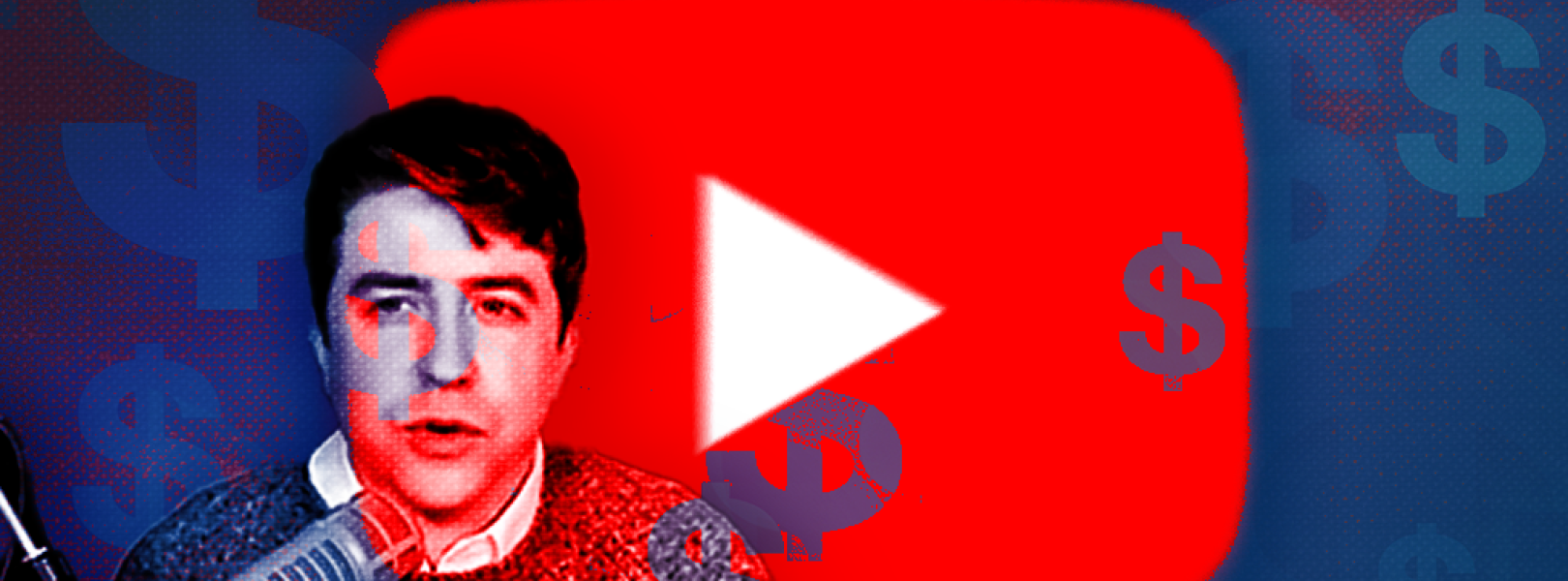YouTube is monetizing and helping raise funds for Patrick Casey, a white nationalist whose group helped organize “Unite the Right”
Casey has been sent over $1,000 through YouTube’s “Super Chat” feature
Written by Alex Kaplan
Research contributions from Carly Evans & Pa'tron Johnson
Published
Updated
Update (1/31/24): Following publication of this article, Patrick Casey’s channel is no longer available on YouTube, and the platform confirmed to Media Matters that it removed his channel.
YouTube has allowed notorious white nationalist Patrick Casey — who led a group that helped organize the 2017 “Unite the Right” gathering in Charlottesville, Virginia — to stream on the platform and monetize his content. Media Matters found that Casey has earned revenue on the platform from both ads that have appeared on his videos and through the “Super Chat” feature, which has garnered over $1,000 in contributions from viewers. YouTube takes a cut from both.
Casey previously led the white nationalist organization Identity Evropa, which helped organize the “Unite the Right” rally, a 2017 white nationalist gathering that resulted in the killing of a counter-protester. (Identity Evropa was later renamed the American Identity Movement and has since disbanded.) According to Ignite The Right, which HuffPost described as a group with an “extensive database of every single white supremacist who has allegedly been identified as attending the Charlottesville rally,” Casey himself attended the “Unite the Right” gathering. He was also previously affiliated with fellow white nationalist Nick Fuentes, and was subpoenaed by the House January 6 Committee for connections to the January 6 insurrection.
Since late 2019, Casey has run a YouTube channel featuring what he calls “commentary from a dissident right perspective.” YouTube has previously penalized the channel for hate speech and medical misinformation, but the channel is still currently active, with Casey streaming regularly.
Casey’s YouTube channel is also monetized, with ads featured on videos that have titles such as “The Consequences of Diversity,” “Debate: Race, Ethnicity, and Religion,” and “The Hidden History of Affirmative Action” and contain interviews with white nationalists and Holocaust deniers like Sean Last, Ron Unz, and Steve Sailer.

YouTube has also allowed Casey to earn money via Super Chat, a feature which enables viewers to pay creators to highlight their comments during a livestream. A Media Matters review found that Casey has been sent just over $1,000 through the feature, with users paying Casey to highlight comments that appear to invoke the n-word, claim that “an even playing field is always a dub for the White man,” claim that “CR law is why anti white racism exists tbh,” call for “deport[ing] … Nikki [Haley] to India,” and call for “Israeli agent Ben [Shapiro] and swarthy arab diaspora” to both “be… CLEARED OUT.”

Citation A "Super Chat" comment on a November 15, 2023, video on Patrick Casey's YouTube channel
YouTube earns revenue both from ads and features like Super Chat, with creators receiving 70% percent of the revenue sent via Super Chat. (One commenter on Casey’s livestream even wrote in a Super Chat, “I heard this method gives you the best percentage of earnings so I’m choosing this.”)
YouTube’s monetization of Casey is another instance of the platform monetizing white nationalist content, and it is part of a broader monetization crisis on its platform. For years, YouTube has repeatedly allowed channels to monetize videos that violate the platform’s own rules, as well as videos pushing other misinformation.
